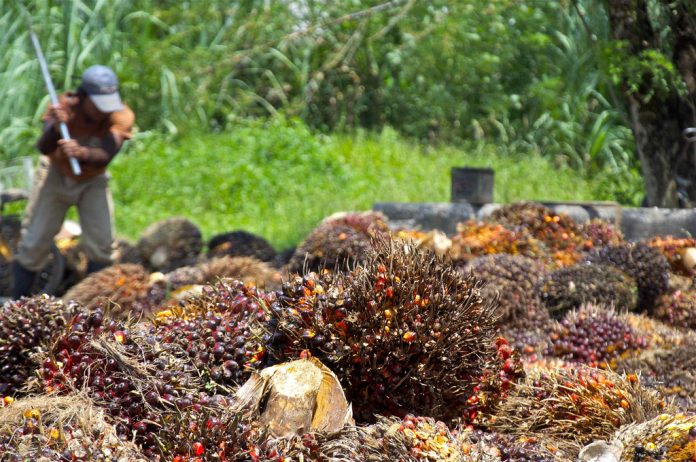Crunch time approaches for a proposed policy change regarding palm oil and biofuels in Europe. Today, an unprecedented array of Indonesian indigenous and civil society actors speak out in defense of phasing out palm oil in biofuels. In an open letter to the European Commission, hundreds of leaders of Indonesian indigenous communities, smallholder organizations, human rights organizations and environmental NGOs warn of the potential environmental and human rights consequences of a continued EU support for palm oil-based biofuels.
“The continued expansion of the palm oil production is responsible for serious human rights violations and forest destruction in Southeast Asia. Using palm oil for biofuels is increasing demand for palm oil, and will result in continued destruction. The EU should phase out the use of palm oil-based biofuels”, says Franky Samperante, the founder and director of the Indonesian NGO Yayasan Pusaka.
The letter comes at a critical juncture in the EU process. Last year, the EU agreed on the Renewable Energy Directive (RED II). The EU agreed to phase out the support to biofuels with a particularly negative climate impact, especially due to the fact that demand for food-based biofuels indirectly drives tropical forest destruction. The European Commission was asked to adopt, by 1 February 2019, a delegated act for determining the high indirect land-use change risk biofuels feedstocks to be phased out.
The use of palm oil based biofuels has been particularly controversial, as palm oil based fuels is found to be the worst among all fuels. Indonesia and Malaysia have lashed out against the EU for the supposed ‘ban’ on palm oil.
In the letter to the EU decision makers, the Indonesian civil society representatives urge the European Commission to pay greater attention to ecological sustainability and human rights when finalizing the delegated act.
“The EU should ensure that renewable energy is only sourced from businesses that are eco-friendly, equitable and respectful of human rights. Palm oil-based biodiesel clearly does not meet these principles, as shown by the emergence of various social, economic and environmental problems”, the Indonesian civil society representatives write in the letter state.
The use of palm oil for fuels has increased sharply in the EU the last decade. Currently, more than half of all the palm oil imported into Europe goes into cars. The EU subsidises it as a “green biodiesel” although it’s three times worse for the climate than regular diesel. The increase in demand in Europe has driven the expansion of oil palm plantations in Indonesia and Malaysia, at the expense of carbon and biodiversity-rich rainforests and peatlands.
Laura Buffet, clean fuels manager with the European federation of green transport NGOs, Transport & Environment (T&E) said: “Burning palm oil diesel is worse for the climate than burning fossil fuel. Europeans don’t want to burn palm oil in their cars. And indigenous communities and smallholder organizations in Indonesia support the end of the unsustainable EU palm oil demand for biofuels. It’s about time the European Commission fixes the EU biofuels policy and phases out the use of palm oil in diesel this 1st February.”
A series of investigations has linked palm oil production in Indonesia to an astonishing assortment of bad outcomes for people, wildlife and the environment. They include rapid loss of biodiversity and habitat that supports endangered species such as orangutans and tigers; huge carbon emissions from fires and loss of carbon-rich peatlands that contribute significantly to climate change; land grabs that impoverish local communities; deplorable working conditions that routinely include child and forced labor; and air pollution that causes chronic respiratory ailments and premature deaths.
“As long as the palm oil industry is responsible for massive destruction of the world’s remaining tropical forests, increased demand for palm oil drives deforestation. To avoid being complicit in this tragedy for the environment and the climate, the EU must ensure that palm oil-based biofuels are not subsidized through its bioenergy policy”, says Nils Hermann Ranum of Rainforest Foundation Norway.
The vast majority of Europeans don’t know they’re putting palm oil in their tanks when filling up with diesel and are opposed to it. In a poll of 4,500 Europeans conducted in nine countries by Ipsos last September, 82% of citizens surveyed were not aware of the fact that diesel fuel has palm oil added to it. When asked whether they would support measures to end policy support and subsidies for palm oil in biodiesel in Europe, 69% of respondents said they would welcome the change, with only 14% against it and 16% with no opinion on the matter.

